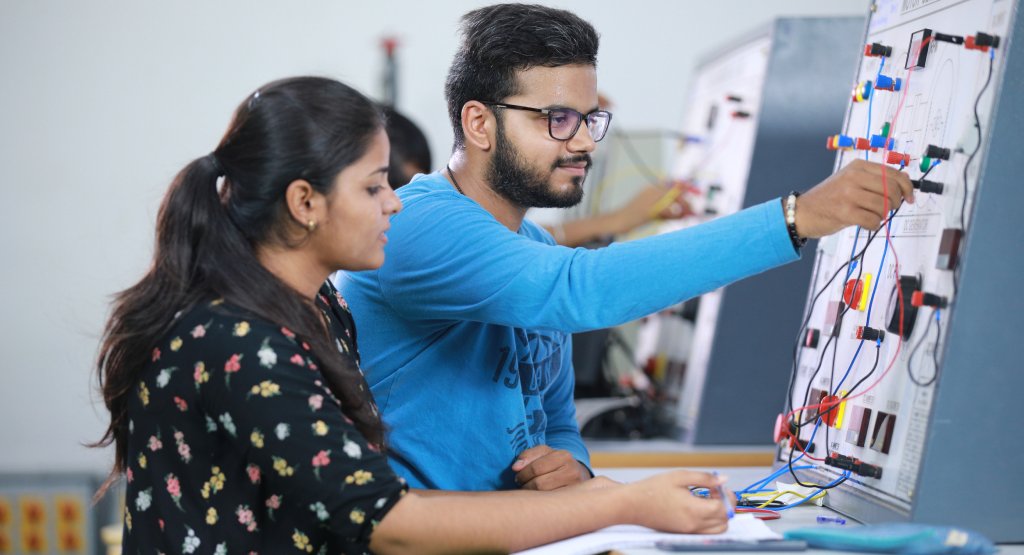Today electronics engineering is the vital force driving the growth of Information Technology.
Electronic engineers design, develop Maintain electronic circuits, devices, and software for applications in diverse areas such as automation and control systems, communication networks, robotics, biomedical devices, computing hardware, automobiles, and power and electrical equipment.

New possibilities are being created daily as the world of electronics evolves, thus, opening up many new opportunities for Electronics and Communication engineers to develop novel and better solutions that improve every aspect of our lives. Semiconductors are driving disruptive innovations in digitalization, but the global semiconductor industry faces a significant talent gap. With India aiming to become the global hub for semiconductor design, manufacturing, and technology development, India has huge potential to become a talent powerhouse in the semiconductor industry to mitigate this acute talent shortage. The Electronics (VLSI) program aims to build the right talent for the fast-growing semiconductor industry.
The Electronics (VLSI) Engineering program’s strength lies in building a solid fundamental background in the engineering sciences, mathematics, analog and digital electronics, microprocessors, controls, computing, embedded systems, communication engineering, Artificial Intelligence, design, modeling, and coding. This background is strengthened with laboratories and course projects. In the senior years, students can choose specializations within the program. The program emphasizes developing graduates with an in-depth understanding of semiconductor devices, VLSI circuit design and verification, FPGA design, fabrication process, and hands-on experience with leading EDA (Electronic Design & Automation) tools. The coursework is complemented with interventions to sharpen or develop soft skills like communication, teamwork, interpersonal skills, and critical thinking, which are essential for a successful career. From the first to the final year, students have opportunities to carry out several projects in which student teams, working with faculty/industry mentors, put their knowledge to work on a real-world issue to find innovative solutions to engineering problems. The program also offers the option of doing an internship with industry or research labs. The advanced state-of-the-art research laboratories allow students to work on projects in niche technology areas.